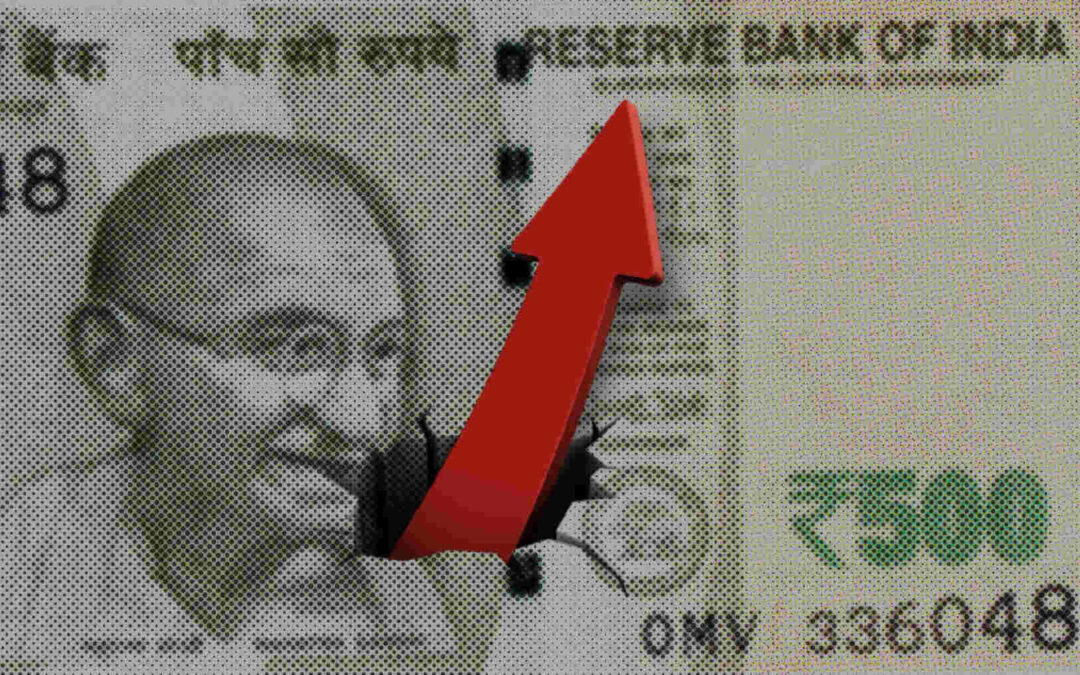
by Sathvik Nagraj | Feb 20, 2023 | Culture & Money
Health is Wealth, and having health insurance is essential to ensure that you and your family stay healthy and protected from any unexpected medical costs. Health insurance offers benefits such as access to affordable healthcare, financial protection, preventative care, specialist care and more.
There is a range of plans available which can help individuals save money while still getting the best possible coverage for their needs.
In this article, we will explore the top benefits of having health insurance. We will learn how it helps protect people financially and why it is important for everyone.
The Top Benefits of Health Insurance
Health insurance is a necessity nowadays. But it is important to understand the reasons behind it. Hence, we will look at a few benefits of health insurance.
Access to quality and affordable healthcare
- Health insurance is essential to ensuring that individuals and their families have access to quality and affordable healthcare.
- With health insurance, individuals can receive medical care from a network of doctors, hospitals and other healthcare providers at discounted rates or have these costs covered entirely by their benefits.
- This can help lower medical costs for those who may not be able to afford them otherwise. This will ensure they receive the medical attention they need.
Protection from unexpected financial risk
- Having health insurance also helps protect people from any unexpected financial risk.
- By having a comprehensive healthcare plan, individuals can guard themselves against high medical bills due to emergency care or other illnesses which may not be covered by their benefits.
- This financial protection ensures that people can access the care they need without worrying about the cost.
Access to preventive care
- One of the benefits of health insurance is that it gives people access to preventative care.
- With healthcare plans, individuals can receive regular checkups, screenings and vaccinations which can help catch any potential illnesses or diseases early on and ensure they don’t develop into something more serious.
- This can help people stay healthy and save money in the long run.
Access to specialist care
- Another benefit of having health insurance is access to specialist care.
- With healthcare plans, individuals can receive treatment from a specialised doctor or hospital at discounted rates which they may not be able to afford otherwise.
- This specialist care can help people get the best possible medical attention for their particular condition and ensure they receive the best treatment possible.
Various plans available
- In India, there are several types of health insurance plans available to individuals and families. These include individual health insurance plans, family floater plans, group health insurance plans, critical illness plans, and senior/older citizen health insurance plans. Choosing the right health insurance plan depends on factors such as age, health condition, and budget..
- Depending on the plan chosen, individuals can access different benefits and features which can help them save money while still getting quality coverage.
Quality coverage
- Health insurance plans can help individuals save money while getting quality coverage.
- Different healthcare plans provide different benefits and features which can enable individuals to save on their medical costs.
Why is Health Insurance a must?
- Health insurance is important for everyone because it can provide access to quality and affordable healthcare services and protect people from unexpected medical costs. It can also help individuals save money while getting the best possible coverage.
- With health insurance, individuals can receive medical care from a network of doctors, hospitals and other healthcare providers at discounted rates. They can also have these costs covered entirely by their benefits.
- Additionally, health insurance plans can help individuals access preventative care and specialist care at discounted rates. Depending on the plan chosen, individuals can get different benefits and features which can help them save money while still getting quality coverage.
- Health insurance is essential for everyone to ensure that people have access to quality medical care without worrying about the cost.
Conclusion
Having adequate health insurance is a vital part of ensuring that everyone has access to quality medical care without worrying about the cost. With different healthcare plans available, individuals can get benefits and features which are tailored to their specific needs.
Health insurance offers protection from unexpected financial risk, access to preventive care and specialist care at discounted rates, as well as various plans for people with different budgets. Everyone needs to have an appropriate healthcare plan to ensure they receive the best possible coverage while saving money on medical bills.
Health insurance is an important part of maintaining good health and financial stability, so everyone must have adequate coverage. Whether it’s through a private plan or public program, having health insurance can help individuals have peace of mind when it comes to their healthcare needs.

by Sathvik Nagraj | Feb 20, 2023 | Culture & Money
What is Inflation? It is a phenomenon that affects everyone in the economy, from businesses to consumers. It is the continuous rise of prices for goods and services over time, resulting in a decrease in the purchasing power of money.
Inflation can be caused by various factors such as increased demand for products and services, increased cost of production, currency devaluation, etc., and it has far-reaching consequences on both individuals and organisations.
In this article we will discuss what inflation is and how it happens, its causes, its effects on different participants in an economy and strategies to manage it.
Meaning of inflation
Inflation is the continuous rise in prices of goods and services over time, resulting in a decrease in the purchasing power of money.
It happens when there is an imbalance between supply and demand for goods or services, which causes a sharp rise in prices over time.
How does Inflation happen?
- This can be caused by various factors, such as increased costs of production, increased demand for products & services, currency devaluation and other external economic forces.
- Inflation affects everyone because it affects the cost of living – as prices increase, so does the price consumers pay for basic necessities like food & housing while their incomes may not necessarily keep up with this increase.
- The inflation rate – or how rapidly prices are increasing – serves as an important metric to measure economic growth and make decisions related to production and consumption.
- If the rates are too high it can cause excessive debt buildup both in individual households and organizations alike; if too low it could lead to deflation which could weaken consumer spending power further leading to an economy-wide slowdown.
- Understanding the causes behind inflation rates helps us better calculate risks associated with planning our finances over time.
Causes of Inflation
While we understand the meaning and properties of inflation, it is also necessary to understand the causes.
Increased demand
Increased Demand is one of the primary causes of inflation. When demand for products and services rises faster than their supply, this causes an imbalance in prices in the economy.
As more people want to buy certain goods or services, vendors may charge higher prices to meet the higher demand. This leads to a sharp rise in prices over time, resulting in boom in prices.
Increased cost of production
Increased Cost of Production can also be a cause of escalation in prices. When the cost of production rises, manufacturers may have to raise prices in order to compensate for their higher costs.
This leads to rise in prices as the final price charged by vendors is higher than it was before due to increased costs.
Currency devaluation
Currency Devaluation is another cause of escalations. When the value of currency falls due to external economic forces, it will take more money to buy the same amount of goods and services as before.
This leads to an increase in prices which contributes to increase in rates.
Effects of Inflation
The effects of inflation are felt by both consumers and businesses.
- On the one hand, it can lead to higher prices for everyday goods and services, which in turn affects the affordability of these items and can have a negative impact on people’s quality of life.
- On the other hand, the increase in prices can benefit businesses by boosting their profits as producers may be able to raise the prices of their products and services without necessarily having to increase the cost of production.
To manage the effects of inflation, individuals and businesses can employ certain strategies. For consumers, it is important to make sure that their incomes grow in line with inflation rates so that their purchasing power does not erode over time.
Other strategies that can be employed include saving, investing and budgeting. For businesses, it is important to adjust prices in line with inflation so as to ensure profitability and sustainability.
Major Takeaways
- Inflation can have a major impact on both consumers and businesses. It affects the cost of living for individuals and profitability for companies.
- Causes of inflation include increased demand, higher costs of production, and currency devaluation.
- To manage the effects of inflation, individuals should make sure their incomes keep up with inflation rates. Businesses need to adjust prices accordingly in order to remain profitable.
- While there is no single solution that works best in all cases, understanding how these different factors affect each other helps us better plan our finances over time. It also helps reduce the negative impacts associated with rising prices due to inflation.
Conclusion
Overall, inflation can have serious implications on individual and business finances if it is not managed properly. Hence, it is necessary to understand what it is and why it keeps rising.
By understanding the causes behind inflation rates and employing strategies to manage them, individuals and businesses can ensure their financial security over time. It is also necessary to by understand the causes behind the rates and employing strategies to manage it, individuals and businesses
In conclusion, inflation is an important economic concept that affects everyone to some extent. Its causes can vary but include increased demand, increased costs of production and currency devaluation.
It is important to understand its causes and impacts. This will help make better decisions for ourselves and others in order to manage its effects.

by Sathvik Nagraj | Feb 20, 2023 | Investment
Are you looking for Investments to Beat Inflation and protect the value of your money over time? If so, then you’ve come to the right place. In this article, we’ll discuss how inflation can erode your savings, what types of investments offer the best returns. We will also discuss tips for investing to beat inflation.
Inflation is a fact of life that affects us all. It’s an economic phenomenon in which prices rise over time due to increases in demand or decreases in supply. This means that it takes more money today than it did yesterday (or will tomorrow) to buy the same items or services.
While some level of inflation is normal and expected as economies grow, too much can be damaging. Especially if you’re relying on your savings to get by each month or provide for retirement down the road.
Fortunately, there are smart investments you can make that beat inflation. They will help maintain the value of your hard-earned cash over time. So let’s take a closer look at how best to invest your money!
The Best Investments to Beat Inflation are the Ones that you can Make Yourself!
- When it comes to investing, there are a variety of strategies and types of investments that can help beat inflation. Generally speaking, the best investments to beat inflation are those that offer high returns with relatively low risk.
- Each of these has the potential to beat inflation when managed correctly. So it’s important to do your research before committing to a particular asset class.
- In addition, there are some key tips for investing that can help you beat inflation over time. These include diversifying your portfolio across different asset classes, investing regularly in both stocks and bonds, and taking advantage of tax-advantaged accounts like 401(k)s, or any provident funds.
- Additionally, it’s important to stay up to date on economic trends and monitor your investments so you can adjust accordingly as markets fluctuate.
Some Investments that help Combat Inflation:
Here are a few proven investment options that will help you beat inflation:
Stocks
One of the more obvious forms of investing in the Indian market in order to beat inflation is stocks.
The stock market has the potential to provide more than 100% of returns in a year and even that is an understatement.
Stocks provide you with partial ownership in a particular company. As the company grows, so do your returns.
Mutual funds
Mutual funds are one of the easiest methods of investment in India.
The best thing about mutual funds is that you can invest a particular amount periodically i.e., yearly, semi-annually, quarterly or monthly.
Returns upon your investments compound on a yearly basis providing you with impressive returns.
Gold and digital gold
Gold and digital gold are two popular investments to beat inflation due to their stable long-term value and low correlation with the stock market.
Gold, for instance, has been used as a form of currency since ancient times and is still recognized around the world as a reliable store of value.
Additionally, gold prices tend to increase when inflation is high, making them a safe bet for protecting your money.
Real estate investments
Investing in real estate is another great option to beat inflation and generate returns over time.
When you invest in real estate, you gain equity as the value of your property increases. It can potentially benefit from appreciation due to inflation.
Additionally, real estate investments can generate passive income through rental payments and provide tax benefits as well.
Commodities
Investing in commodities is another effective way to beat inflation and protect the value of your money. Commodities are items such as metals, oil, wheat, pork bellies and other similar goods that are traded on exchanges.
These commodities have intrinsic value and can be bought and sold like stocks or bonds.
When the prices of these commodities rise due to inflation, they provide investors with an opportunity to beat it and make profits.
Commodities can be bought directly or through futures contracts which offer leverage on the underlying commodity prices.
Conclusion
Overall, investing is an essential part of financial success. Taking the time to understand the best way to invest money, identify smart investments to beat inflation and create a diversified portfolio can help you preserve your wealth over time and enjoy a secure financial future.
Investing is a great way to beat inflation and ensure the long-term value of your hard-earned money.
By diversifying your portfolio across different asset classes, investing regularly, taking advantage of tax-advantaged accounts like 401(k)s, provident funds etc and understanding which investments beat inflation best, you can maximise returns on your investment while protecting yourself from rising prices.
With these tips in mind, you’ll be well on your way to achieving financial success for years to come!

by Sathvik Nagraj | Feb 20, 2023 | Savings, Slider
Why Create an Emergency Fund?
It is essential to have and build an emergency fund to protect your finances from unexpected events. Whether you’re facing a job loss, medical bills, or home repairs, having money set aside in an emergency fund can provide financial security and peace of mind. Building an emergency fund effectively requires careful planning and budgeting, but it doesn’t have to be complicated.
In this article, we will discuss the steps necessary to create an emergency fund that meets your needs. This fund will make sure it provides protection when life throws you curveballs.
We will also provide tips on how to stay motivated while saving as well as ways to keep your savings safe. With these tools in hand, you can secure your finances with ease!
Also check out our article on everything about the MICR codes found on a cheque here.
5 Steps to Build an Emergency Fund
Let us look at the main steps involved in building an emergency fund.
Create a budget and determine your savings!
Creating a budget and determining how much to save each month is a crucial step in building an effective emergency fund.
It’s important to look at all your expenses and determine what you can realistically set aside each month.
Start by looking at your current income and expenses. Make a list of all your bills, living costs, entertainment, debt etc.
Storing your emergency fund
When it comes to storing your emergency fund, there are a variety of options depending on your financial situation and needs.
The most common type of account is a high-yield savings account which can provide an annual interest rate of up to 0.5% or more.
You can also consider investing in certificates of deposit (CDs) or money market accounts to build your emergency fund.
Set up an automatic savings plan.
Once you have decided where to store your emergency fund, the next step is setting up an automatic transfer or direct deposit from your paycheck into the account.
This way, you don’t even have to think about it — the money will be saved automatically each month.
To stay motivated, make sure you have a clear goal in mind. For example, if you don’t have any money saved for an emergency yet, start small and commit to saving a certain amount each month until you build up your fund.
Staying motivated
Staying motivated while saving money can be a challenge, especially when you have bills to pay and other financial commitments.
It’s important to remember the goal of building an emergency fund: to provide yourself with financial security and peace of mind in the event of an unexpected expense or event.
The best way to stay motivated is by setting realistic goals and rewarding yourself when you reach them.
Keep your savings safe!
Finally, it’s important to keep your emergency fund safe from theft or fraud.
Be sure to select a financial institution or a bank that is recognized by the Reserve Bank of India. Only use bank accounts with two-factor authentication if possible.
You should also store the account information in a secure location. Consider setting up online alerts so you can monitor your savings regularly.
Takeaways!
Building an emergency fund is essential for financial security and peace of mind. With the right steps in place, you can build a strong emergency fund that will help you weather any storm life throws at you.
Start by creating a budget to determine how much money you can realistically save each month. Then decide on where to store your funds and set up an automatic savings plan so it’s saved automatically every month.
Finally, be sure to keep your savings safe from theft or fraud with FDIC-insured accounts and two-factor authentication if possible.
Conclusion
By following the tips in this article, you can build an emergency fund effectively, that will provide financial security and peace of mind. Remember to create a budget, determine how much you can save each month, set up an automatic savings plan, and keep your savings safe.
With these steps in place, you’ll be prepared for whatever life throws at you!

by Sathvik Nagraj | Feb 17, 2023 | Investment, Savings
Are you a beginner when it comes to managing your finances? Do you want easy money management tips to optimise your savings? If so, don’t worry – you’re not alone! Many people struggle with basic money management skills and often feel overwhelmed by the thought of budgeting, saving, investing and more.
But fear not – help is at hand! In this article, we will provide some easy-to-follow tips that can help even the most novice financial managers take control of their finances.
From creating a budget to setting financial goals and building an emergency fund, these steps are sure to put beginners on the path toward mastering their personal finances. So let’s get started!
Why is Money Management Important for Beginners?
Money management is an important skill for anyone, but it is especially important for beginners who are just starting to take control of their finances.
Money management involves setting long-term financial goals, setting up budgeting and tracking systems, and understanding how investments can help you meet your financial goals.
Having a sound money management plan is essential for anyone looking to take control of their finances. Hence, money management tips is some knowledge that every person should possess.
Money management involves creating a budget and tracking spending habits, setting achievable financial goals, understanding how investments can help you reach those goals, and building an emergency fund in case of unexpected expenses.
How to Manage Your Money better?
Managing your finances can be a daunting task, especially for beginners. With so many complex concepts and money management strategies to consider, it can be difficult to know where to start.
Fortunately, there are a few simple steps you can take that will help you get on the right track with your finances. These money management tips are:
Creating and sticking to a budget
One of the most important money management tips for beginners is creating a budget. A budget is an organised plan that outlines where money should be allocated and how much should be spent on various expenses, such as rent, food, transportation, and more.
Creating a budget can help you save money and manage your finances better. It allows you to set
Creating and sticking to a budget is an important part of money management, especially for beginners. It can be tailored to fit your lifestyle, whether you’re living paycheck to paycheck or saving up for a big purchase.
Tracking spending habits
Tracking spending habits is an essential money management tip for beginners. By keeping track of where and how your money is being spent, you can better manage your finances and make more informed decisions regarding budgeting and importance of savings.
Tracking your spending also allows you to set realistic financial goals and stay on top of any potential overspending.
Setting financial goals
Setting financial goals is a good way to manage your money. It helps you think about what you want your money to do for you, like saving up for something or having extra money in case of an emergency.
To set financial goals, make a list of things that are important to you and how much they cost.
Then plan out step-by-step what it will take to reach those goals and set a timeline for when you want them achieved.
Finally, keep track of your progress so that you stay on track with reaching your goals.
Emergency funds
An emergency fund is a financial cushion that can provide security and stability in times of unexpected financial difficulties. It’s an important part of any money management strategy, and it’s especially critical for beginners.
An emergency fund can help you cover unexpected expenses, such as medical bills or home repairs, without having to take on debt or dip into savings.
Invest wisely
Investing wisely is an essential part of money management for both beginners and experienced investors. It involves diversifying your portfolio to reduce risk, understanding different types of investment products, and having a clear understanding of your risk tolerance levels.
Diversifying your portfolio is one of the most important aspects of investing wisely. This means spreading out and investing in an array of different asset classes to maximise return and minimise risk. It is an effective way to manage risk and maximise returns.
A portfolio of investments can include stocks, bonds, mutual funds, exchange-traded funds (ETFs), and cash instruments.
When diversifying a portfolio, it’s important to choose assets that have a low correlation with each other. This means that the performance of one asset or class of assets does not directly correlate with the performance of another.
Conclusion.
Money management for beginners can seem daunting, but it doesn’t have to be. By following these simple money management tips such as creating and sticking to a budget, tracking spending habits, setting financial goals, having an emergency fund, and investing wisely you’ll be well on your way to becoming a personal finance manager.
You don’t need any special skills or knowledge; all you need is some dedication and determination!
With these steps in mind, anyone can become financially secure with just a bit of effort. So start today by making smart money decisions so that tomorrow will be easier!





